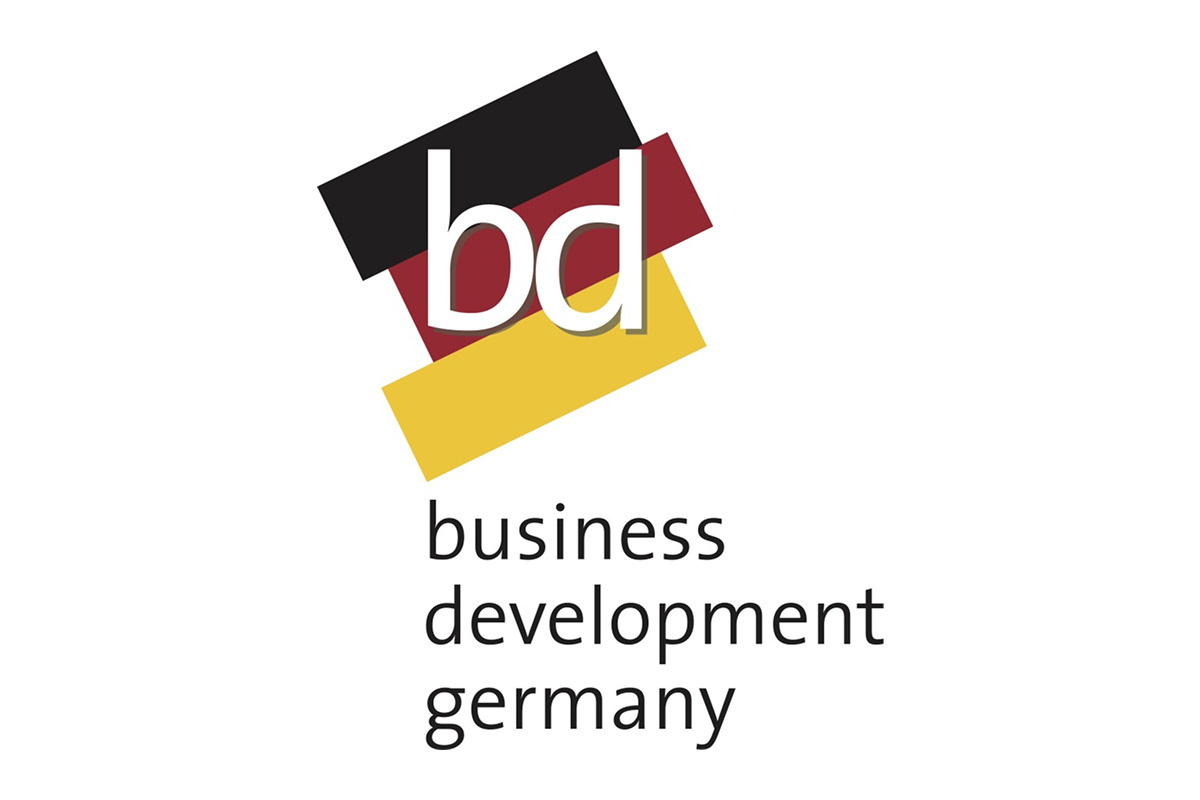The divide between German thoroughness and Anglo-American speed represents one of global business's most persistent cultural tensions. Where Silicon Valley startups proudly launch minimum viable products and iterate rapidly, many German firms prioritize comprehensive planning before market entry. This philosophical difference, though far from universal, continues to shape international commerce, creating both friction and opportunity in an increasingly interconnected economy.
Yet reducing this to simple stereotypes misses crucial nuance. Germany hosts thriving startup ecosystems in Berlin and Munich, while American aerospace and pharmaceutical companies exemplify Germanic meticulousness in their decades-long development cycles. Understanding these tendencies requires examining their historical roots, current manifestations, and evolving future.
Historical Foundations: More Than Stereotypes
Germany's reputation for engineering excellence emerged from specific historical circumstances. The post-war Wirtschaftswunder (economic miracle) demanded products that could compete globally based on quality rather than price. Companies like Volkswagen, Siemens, and Bosch built their international reputations on products designed for long-term reliability, turning the ‘Made in Germany’ label into a symbol of trust. This was not merely a preference but an economic necessity for a small, war-damaged nation that needed to maximize the value of every export.
The data supports this strategic focus. According to Germany Trade and Invest (GTAI), German companies hold 16% of global mechanical engineering markets despite representing only 1% of the global population. The Fraunhofer Institute reports that German manufacturing defect rates average 3.4 per million opportunities, compared to 6.8 in the United States and 8.2 in the United Kingdom. German products command price premiums averaging 20% above global competitors, according to Roland Berger analysis, justified by superior reliability and longevity.
This focus on quality extends beyond manufacturing. The German Mittelstand—small and medium-sized enterprises forming the economy's backbone—often dominate narrow global niches through exhaustive specialization. Screw manufacturer Würth controls 40% of the global market for specialized fasteners, while Krones holds 25% of the bottling equipment market. These hidden champions succeeded through patient refinement, not rapid expansion.
However, painting all German businesses with the same brush ignores significant exceptions. Berlin-based incubator Rocket Internet built its empire by rapidly cloning successful American business models. Founder Oliver Samwer explicitly rejected traditional German methodicism: "There's nothing wrong with copying if you execute better." Zalando revolutionized European e-commerce through aggressive experimentation and market testing, burning through €2 billion before achieving profitability—anathema to traditional German business philosophy. Fintech startup N26 achieved unicorn status by iterating quickly rather than perfecting slowly, launching in new markets within weeks rather than years.
Similarly, characterizing all Anglo-American firms as "move fast and break things" adherents overlooks numerous counterexamples. Boeing typically spends 7 to 10 years developing new aircraft models, with the 787 Dreamliner alone requiring over $32 billion in development costs over a decade. Johnson & Johnson averages 12 years to bring pharmaceuticals to market, conducting trials with ‘Germanic’ thoroughness. General Electric's gas turbines undergo thousands of hours of testing, with individual components assessed for 30-year lifecycles. These companies succeed through meticulous planning, not Silicon Valley speed.
Contemporary Manifestations: A Spectrum, Not a Binary
Modern business practices reveal a spectrum of approaches rather than a simple dichotomy. Research by INSEAD business school examining 500 product launches across industries found that German companies averaged 24 months from conception to market, while American firms averaged 14 months, and British companies 16 months. Yet variance within countries often exceeded variance between them: German software companies averaged just 8 months, while American medical device manufacturers averaged 36 months.
The automotive industry illustrates this complexity perfectly. Traditional German automakers like Mercedes-Benz and BMW typically maintain five to seven-year development cycles for new models, with extensive testing protocols covering millions of kilometers. American electric vehicle manufacturer Tesla compresses this to two to three years through rapid prototyping and over-the-air updates. Yet Volkswagen's new electric vehicle division, led by former BMW executive Herbert Diess, deliberately adopted Tesla-style agility, launching the ID.3 in just three years. Meanwhile, Ford's electric F-150 underwent traditional lengthy testing, including 500,000 miles of durability trials in extreme conditions.
Software development shows even greater nuance. Germany's software giant SAP built its dominance through comprehensive enterprise solutions requiring extensive customization and implementation projects often spanning 18–24 months. Yet younger German software companies like Celonis and Personio embrace agile methodologies and continuous deployment, pushing updates weekly rather than annually. Meanwhile, American financial software companies like Intuit combine rapid feature releases with ‘Germanic’ attention to accuracy and compliance, understanding that tax software errors carry severe consequences.
The startup ecosystem challenges traditional narratives. Berlin now ranks among Europe's top startup hubs, with German venture capital investments reaching €17.4 billion in 2023, according to EY research, representing a 300% increase from 2018. Many startups embrace fail-fast methodologies. Delivery Hero, Germany's food delivery giant, expanded to 50 countries through rapid market entry and quick pivots. Conversely, Silicon Valley increasingly recognizes that some sectors, such as healthcare, autonomous vehicles, and financial services, require more ‘Germanic’ thoroughness to navigate regulatory requirements and safety concerns. Waymo, Alphabet's self-driving subsidiary, has spent over 15 years and $30 billion developing its technology, rejecting pressure for premature commercialization.
Cross-Border Challenges: Where Cultures Collide
Cultural differences create real challenges in international collaboration, often manifesting in unexpected ways. McKinsey's 2023 survey of 200 cross-border joint ventures found 67% of German-Anglo partnerships cited "planning methodology differences" as primary friction points. German respondents reported frustration with what they perceived as inadequate preparation, while Anglo-American partners felt constrained by excessive analysis. These differences extend beyond planning and bureaucracy to communication styles, decision-making processes, and risk assessment frameworks.
A senior executive at a major German automotive supplier, speaking on condition of anonymity, described partnering with a British technology firm: "They wanted to start coding immediately and refine through customer feedback. Our engineers insisted on complete specifications first. We spent three months arguing about the development process before writing a single line of code. Both sides thought the other was being unreasonable."
These tensions manifest in measurable outcomes. European Business Review research found that German-American joint ventures took 40% longer to reach initial milestones than partnerships between culturally-similar nations, though they showed 25% lower failure rates after five years. This suggests that navigating cultural differences, while initially challenging, may produce more robust outcomes. The study tracked 150 partnerships from 2015–2023, finding that successful collaborations explicitly acknowledged and planned for cultural differences, creating hybrid processes that leveraged both approaches.
The COVID-19 pandemic unexpectedly highlighted these differences. Oxford University and AstraZeneca developed their vaccine through rapid iteration and parallel processing, a classic Anglo-American approach, conducting multiple trial phases simultaneously. BioNTech, the German company behind the Pfizer vaccine, maintained systematic development stages despite unprecedented urgency, though they compressed timelines through 24/7 operations. Both succeeded, demonstrating that different methodologies can achieve similar endpoints. Interestingly, BioNTech's Turkish-German founders, Uğur Şahin and Özlem Türeci, credited their success to combining German precision with entrepreneurial agility—a conscious cultural synthesis.
Institutional Factors: Why Differences Persist
Cultural business practices do not exist in isolation but emerge from broader institutional contexts. Germany's dual education system, combining classroom learning with apprenticeships, produces workers deeply trained in specific crafts. Approximately 1.3 million Germans enter apprenticeships annually, spending three to four years mastering particular skills. This creates a workforce oriented toward expertise and precision rather than flexibility and generalization.
Capital markets also reinforce cultural differences. German companies rely heavily on bank financing, with relationship banking encouraging long-term stability over rapid growth. The Hausbank system, where companies maintain decades-long relationships with primary banks, provides patient capital supporting methodical development. American firms, conversely, depend more on equity markets that demand quarterly results, incentivizing faster product cycles and visible progress. British markets fall between these extremes, with London's financial sector providing diverse funding options but emphasizing shorter-term returns than German banks.
Regulatory environments further shape business approaches. Germany's extensive worker protection laws, including (almost) mandatory works councils in companies with over 500 employees (if workers want it), necessitate thorough planning for changes. Codetermination laws requiring employee representation on supervisory boards mean German firms must build consensus before major decisions. American at-will employment and minimal consultation requirements enable rapid pivots. These structural differences make German companies more deliberate and American firms more agile.
Evolving Practices: Convergence and Differentiation
Globalization drives both convergence and differentiation in business practices. Multinational corporations increasingly adopt hybrid approaches, tailoring methodologies to specific challenges. German industrial giant Siemens maintains traditional thoroughness for critical infrastructure projects while embracing startup-style innovation labs for digital ventures. Their Next47 venture unit operates with Silicon Valley velocity, investing in startups and rapidly prototyping new technologies, while the core business remains methodical.
Academic research supports this hybridization trend. Professor Andreas Engelen from the University of Düsseldorf studied 150 German companies entering international markets between 2015–2023. He found successful firms consciously adapted their approach based on market context: maintaining German precision for technical products while adopting Anglo-American speed for consumer services. Companies that rigidly maintained home-country practices showed 35% lower international success rates than adaptive firms.
The data suggests younger generations may accelerate this convergence. A 2024 Deloitte survey of business students found that German respondents increasingly valued "adaptability" and "speed to market," while American and British students showed growing appreciation for "quality" and "long-term thinking." This generational shift could reshape national business cultures over coming decades, though institutional inertia may slow change.
Strategic Synthesis: Leveraging Both Approaches
Rather than viewing ‘German thoroughness’ and ‘Anglo-American speed’ as incompatible, successful organizations leverage both strategically. Amazon applies Germanic precision to its logistics infrastructure, planning fulfillment centers with obsessive detail while maintaining startup agility in service development. Their two-pizza teams can launch features within weeks, but warehouse automation projects undergo years of optimization.
German sportswear giant Adidas combines traditional product quality with rapid fashion cycles learned from American competitors. Their Speedfactory initiative attempted fully automated, localized production, enabling two-week concept-to-customer cycles—radical for a German manufacturer. Though ultimately discontinued, the experiment demonstrated German companies' willingness to challenge cultural defaults.
Consulting firm Roland Berger analyzed 50 successful cross-border acquisitions and identified key success factors. Companies that explicitly acknowledged cultural differences during integration planning showed 2.3 times higher success rates than those assuming cultural alignment. Most successful acquirers created dual-track processes: maintaining target company practices where speed mattered, while implementing their own standards where reliability was paramount. Cisco's acquisition of German company Kalpana succeeded by maintaining German engineering standards while accelerating market entry timelines.
Future Trajectories: Technology and Sustainability
Looking ahead, technological and environmental trends may reshape cultural business practices. Artificial intelligence and automation could reduce the speed-quality trade-off by enabling rapid iteration with fewer errors. Digital twins allow Germanic-style testing without slowing physical development. BMW uses digital twins to simulate millions of driving scenarios before building prototypes, combining thoroughness with speed. Agile methodologies, originally from software, increasingly influence traditional manufacturing, with Bosch implementing sprint-based development, even for physical products.
Climate change and sustainability demands may favor German-style long-term thinking. The European Union's Corporate Sustainability Reporting Directive requires companies to consider multi-decade impacts, potentially spreading German planning culture globally. Tesla's success partly stems from Elon Musk's ‘Germanic’ obsession with manufacturing efficiency combined with Silicon Valley innovation speed, suggesting sustainability leaders need both approaches.
Conclusion: Embracing Complexity
The narrative of German thoroughness versus Anglo-American speed contains truth but obscures greater complexity. While cultural tendencies persist, influenced by historical legacies and institutional structures, successful companies increasingly transcend simple categorization. Modern business success requires cultural fluency, understanding when to apply which approach rather than dogmatically following one philosophy.
For international business practitioners, competitive advantage lies not in perfecting one approach but in fluidly moving between them. Companies that can be thoroughly ‘German’ when reliability matters and boldly experimental when speed counts will likely outperform those locked into single methodologies. As borders blur and businesses globalize, the winners will not be those who are most ‘German’ or ‘American’, but those sophisticated enough to be both, and neither, as circumstances demand.
Article provided by Thim Werner, CEO of BDG.


